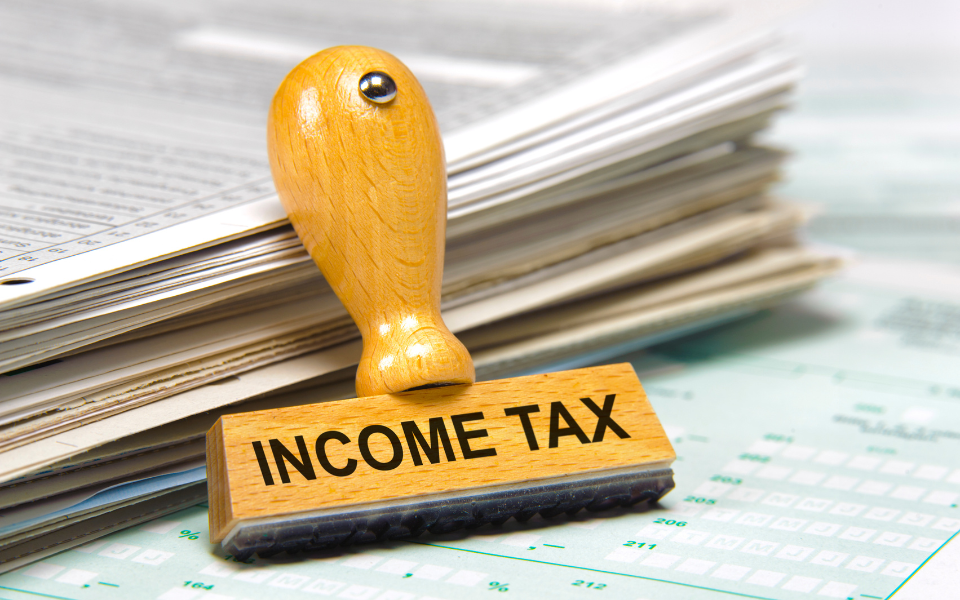Understand Singapore's corporate tax framework, including tax incentives, and learn how to file your Estimated Chargeable Income (ECI).
Overview of Singapore's Corporate Tax System
Singapore imposes a corporate income tax rate of 17% on chargeable income for the Year of Assessment (YA), applicable to all tax-resident companies. Certain companies are required to submit their Estimated Chargeable Income (ECI) as part of their tax obligations.
Tax Incentives and Exemptions
Singapore’s corporate tax system is designed to support businesses. Start-ups can benefit from significant tax reliefs in their initial years, effectively reducing their overall tax burden. The filing process is also user-friendly, requiring companies to submit an estimated income report within three months after their financial year ends, followed by the complete tax return by 30 November.
Recent Developments
On 11 November 2024, the Development and Expansion Incentive (DEI) scheme was updated to introduce a 15% concessionary tax rate for large multinational corporations (MNCs). This change enables these companies to continue qualifying for incentives amidst evolving global tax regulations. Initially, firms engaging in new high-value projects or expanding operations could benefit from reduced tax rates of 5% and 10%.
On 15 October 2024, the Multinational Enterprise (Minimum Tax) Bill was approved in Parliament and will take effect on 1 January 2025. This legislation introduces two new taxes:
1. Domestic Top-up Tax (DTT): This applies to Singapore-based companies within a large MNE group if their actual tax rate falls below 15%.
2. Multinational Enterprise Top-up Tax (MTT): This tax targets MNEs in Singapore with subsidiaries in countries where tax rates are below 15%. It includes the Income Inclusion Rule from the BEPS 2.0 Global Anti-Base Erosion (GloBE) standards.
These changes may lead to increased tax liabilities for your business, so it is essential to stay informed.
General Corporate Income Tax Principles
Both resident and non-resident companies conducting business in Singapore are taxed on income sourced within the country and on foreign-sourced income when brought into Singapore, as outlined in the Singapore Income Tax Act of 1947.
Basis Period and Year of Assessment
Singapore's tax system operates on a preceding-year basis, meaning companies are taxed on profits earned in the prior financial year. For example, profits made in 2023 will be taxed in YA 2024. You can choose your financial year-end based on business needs, and changes can be requested via BizFile+.
Corporate Income Tax Rate
The corporate income tax (CIT) rate is set at 17%, applicable to both local and foreign companies operating in Singapore. Chargeable income is defined as the taxable amount remaining after deducting all allowable expenses for the specified YA. Notably, capital gains are not taxed in Singapore.
From 1 January 2025, a 15% minimum effective tax rate will be enforced for large MNEs based in Singapore.
CIT Rebates and Tax Exemptions
In Budget 2024, the CIT Rebate program was introduced to assist businesses facing increased expenses, offering a 50% rebate on income taxed at concessionary rates (excluding final withholding tax). This rebate is calculated based on tax payable after deductions, including foreign tax credits, and is automatically applied to your YA 2024 tax assessment.
For companies already assessed for YA 2024, revised notices reflecting the rebate will be issued by 31 August 2024.
Corporate Income Tax Filing Requirements
All companies registered in Singapore must file a Corporate Income Tax Return (CIT Return), regardless of their operational location. This filing occurs twice a year.
Overview of CIT Returns
Companies must complete the appropriate form for their CIT return based on their specific circumstances. Alongside the forms, companies are required to submit either audited or unaudited financial statements and tax computation working papers detailing adjustments made to determine taxable income.
Companies must estimate their taxable income (ECI) within three months after their financial year-end. Missing the filing deadline can result in penalties and late payment interest. If your tax situation is complex or if you have questions about the filing process, seeking advice from a qualified tax professional is recommended.
Estimated Chargeable Income (ECI) Filing
Companies must file an estimate of their taxable profits for each YA after deducting allowable expenses, known as Estimated Chargeable Income (ECI). This estimate is necessary for the IRAS to assess the company’s performance and ensure accurate taxation.
You are not required to file ECI if your company:
· Has an annual revenue of SGD 5 million or less.
· Has no taxable income for the YA (before applying any exemptions for new startups or partial exemptions).
Certain companies are exempt from filing ECI regardless of revenue, including:
· Foreign ship owners or charterers with local shipping agents.
· Foreign universities.
· Designated unit trusts and approved CPF unit trusts.
· Real estate investment trusts under specific tax treatments.
Forms for Filing
The primary tax return forms include:
· Form C-S (Lite): Designed for very small companies with annual revenue up to SGD 200,000, requiring only essential information.
· Form C-S: A simplified tax return for small companies with annual revenue up to SGD 5 million, demanding more detail than Form C-S (Lite) but less than Form C.
· Form C: A detailed return for companies not eligible for Forms C-S or C-S (Lite), requiring full financial statements and supporting documents.
The due date for hard copy submissions is 30 November, while electronic submissions via IRAS MyTax can be made until 15 December. This requirement applies universally, regardless of prior ECI submissions or financial status.
Setting Up Corppass for Tax Filing
The Corppass system is essential for businesses to manage access to digital services when interacting with government agencies online. To utilize IRAS digital services through your MyTax Portal account, you must authorize users via Corppass.
Authorized personnel can:
1. Manage your company’s Corporate Income Tax matters.
2. Communicate with IRAS regarding tax issues through various channels, including phone, email, and in-person meetings.
This system streamlines tax-related tasks and communication for your organization.
Start-up Tax Exemption Scheme
Established in YA 2005, the Start-up Tax Exemption scheme provides significant tax advantages to new companies incorporated in Singapore to alleviate financial pressures during their initial years.
To qualify, a company must meet these criteria:
1. It must be incorporated in Singapore and recognized as a tax resident for the relevant YA.
2. Its total share capital must be beneficially owned by no more than 20 shareholders during each basis period for that YA. At least one shareholder must hold a minimum of 10% of the issued ordinary shares.
The amount of tax exemption available depends on the year of incorporation and the YA. This scheme is available for the first three years of assessment. After this period, companies can apply for the Partial Tax Exemption (PTE).
It is important to note that not all start-ups qualify for this scheme, particularly property development and investment holding companies.
Partial Tax Exemption Scheme
The Partial Tax Exemption (PTE) scheme is available to all companies, including those limited by guarantee, unless they benefit from the start-up tax exemption. This scheme offers a tiered tax reduction on a company's income, subject to the CIT rate of 17%.
Since 2020, the PTE scheme provides a 75% exemption on the first SGD 10,000 of normal chargeable income, followed by a 50% exemption on the next SGD 190,000. This structure significantly lessens tax liabilities for qualifying businesses, supporting financial growth and stability.
Tax Incentives
Businesses engaged in specific activities or industries that benefit Singapore’s economy can access tax incentives. These incentives aim to support companies involved in substantial activities or with ambitious growth plans by providing benefits for qualifying income over a limited period, stimulating economic growth.
To qualify for these incentives, companies must:
· Significantly contribute to deepening activities or creating new capabilities and high-value skilled jobs in Singapore.
· Be subject to regular reviews of their economic contributions for qualifying activities.
Additionally, companies can utilize a group relief system to transfer current-year losses, donations, and unabsorbed capital allowances among related entities, effectively lowering overall group tax liabilities.
Singapore also has Double Taxation Agreements (DTA) with over 80 jurisdictions, including major economies in Asia, to prevent double taxation.
This comprehensive overview should provide you with a clear understanding of Singapore's corporate income tax landscape, including filing requirements, exemptions, and incentives available to businesses operating in the region.



